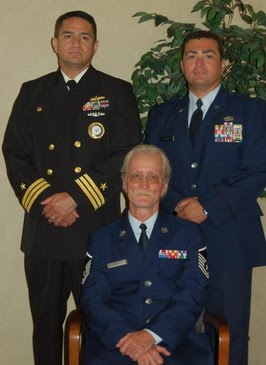The president's emphatic defense yesterday of warrantless eavesdropping on U.S. citizens and residents marked the third time in as many months that the White House has been obliged to defend a departure from previous restraints on domestic surveillance. In each case, the Bush administration concealed the program's dimensions or existence from the public and from most members of Congress.
...
Since October, news accounts have disclosed a burgeoning Pentagon campaign for "detecting, identifying and engaging" internal enemies that included a database with information on peace protesters. A debate has roiled over the FBI's use of national security letters to obtain secret access to the personal records of tens of thousands of Americans. And now come revelations of the National Security Agency's interception of telephone calls and e-mails from the United States -- without notice to the federal court that has held jurisdiction over domestic spying since 1978. (emphases mine)
Just what did the President say? This, in part:
The activities I authorized are reviewed approximately every 45 days. Each review is based on a fresh intelligence assessment of terrorist threats to the continuity of our government and the threat of catastrophic damage to our homeland. During each assessment, previous activities under the authorization are reviewed. The review includes approval by our nation's top legal officials, including the Attorney General and the Counsel to the President. I have reauthorized this program more than 30 times since the September the 11th attacks, and I intend to do so for as long as our nation faces a continuing threat from al Qaeda and related groups.It appears to me the administration covered its bases as far as (a) informing the Congress of ongoing surveillance activities and (b) reviewing and certifying surveillance actions are being conducted in accordance with the law. It also appears to me the administration was proactively trying to correct one of the principal findings of the 9/11 Commission, that being the "stove-piping" of intelligence information and the lack of coordination between Federal intelligence and law enforcement agencies, long before the findings of said commission were finalized and made public. Additionally, it's been noted in testimony before Congress that the FBI, the federal agency authorized to investigate and monitor domestic threats, has been sorely lacking the technical means and capabilities to effectively conduct domestic surveillance.
The NSA's activities under this authorization are thoroughly reviewed by the Justice Department and NSA's top legal officials, including NSA's general counsel and inspector general. Leaders in Congress have been briefed more than a dozen times on this authorization and the activities conducted under it. Intelligence officials involved in this activity also receive extensive training to ensure they perform their duties consistent with the letter and intent of the authorization.
(again, emphases mine)
While the FBI has always been among the world's best collectors of information, for a variety of historical reasons, the Bureau never established a formal infrastructure to exploit that information fully for its intelligence value. Individual FBI agents have always capably analyzed the evidence in their particular cases, and then used that analysis to guide their investigations. But the FBI as an institution never elevated that analytical process above the individual case or investigation to an overall effort to analyze intelligence and strategically direct intelligence collection.Doesn't it seem prudent and necessary for the President to leverage existing technical means to conduct surveillance designed to identify and eliminate domestic threats to national security? Especially if the agency charged with conducting said surveillance (the FBI) lacked the necessary means to do so? If we had suffered another attack, post-9/11, and it became apparent the government had existing means to identify threats through surveillance and monitoring but did not do so, would the President have been held responsible? You know the answer to that question.
Today, an enterprise-wide intelligence program is absolutely essential. The threats to the homeland are not contained by geographic boundaries and often do not fall neatly into investigative program categories. Consequently, threat information has relationships and applicability that crosses both internal and external organizational boundaries. Counter-terrorism efforts must incorporate elements from -- and contribute toward -- counter-intelligence, cyber, and criminal programs. In order to respond to this changing threat environment, we are building our capabilities to fuse, analyze and disseminate our related intelligence, and to create collection requirements based on our analysis of the intelligence gaps about our adversaries. (Robert S. Mueller, III, Director, FBI. Before the Select Committee on Intelligence of the United States Senate, February 24, 2004)
All officers of the Federal government, including the President, swear an oath "...that I will support and defend the Constitution of the United States against all enemies, foreign or domestic..." It's a sad fact of life that some American citizens are "domestic enemies." It would be irresponsibility of the highest order to give these enemies a free hand to conduct operations against the United States, from within the United States. Let's keep our perspective, here.




.jpg)




No comments:
Post a Comment
Just be polite... that's all I ask.